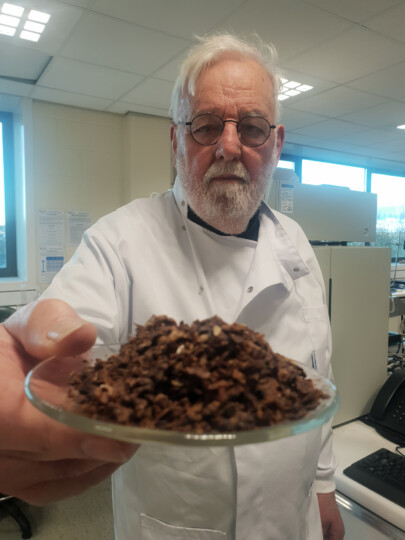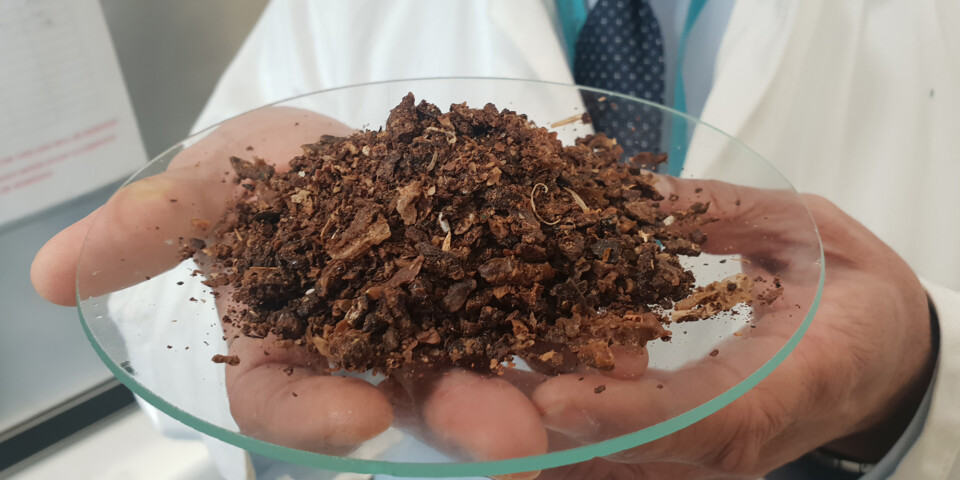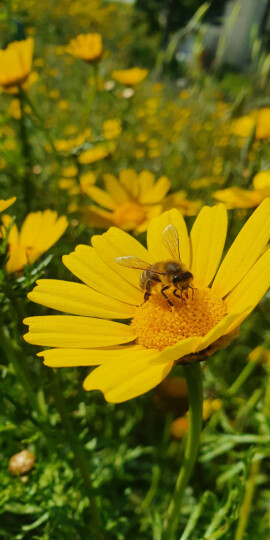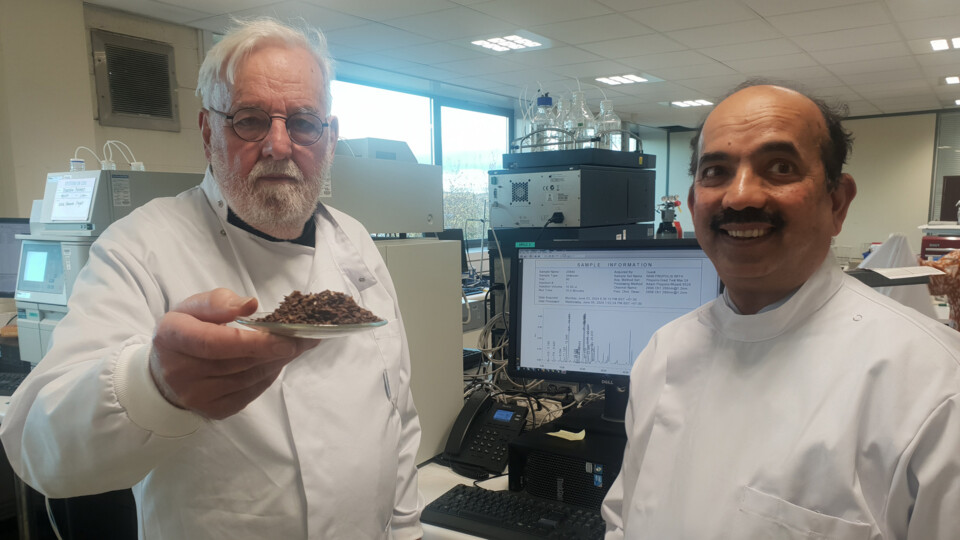Propolis: rise of the nutraceutical
It’s time we redefined our relationship with our immune systems. Consumers now look much more seriously at natural products in the context of mounting difficulties, dilemmas, side-effects and other problems with pharmaceuticals, particularly antibiotics. What consumers want is to move away from the folklore and witchcraft remedy process and thanks to our long-term collaboration with Bradford, we have done that.
-Founder and CEO of Nature’s Laboratory James Fearnley
James Fearnley is founder and chief executive of Whitby-based Nature’s Laboratory and has spent the last 35 years investigating the astonishing effects of propolis, a remarkable substance used by honeybees to defend their hives against disease and infection.
Propolis has been used medicinally for thousands of years – even the ancient Egyptians used it. In modern times, its health benefits are being documented in a growing bank of peer-reviewed academic research.
Among these are claims that propolis could help us tackle antibiotic resistance, be an effective alternative to drugs to treat Escherichia coli and Staphylococcus aureus and even MRSA.
Thanks to a 15-year relationship with the University of Bradford, Whitby-based Nature’s Laboratory, has launched a range of propolis-based products, from shampoo to soap and toothpaste to child-friendly ‘b-gel’ to treat gum mouth ulcers.
James, whose name appears on more than 40 peer-reviewed papers, said: “Propolis may be a natural alternative to some pharmaceuticals, not least because of its anti-inflammatory, anti-fungal, anti-bacterial and anti-oxidant properties. One of the downsides of antibiotics is it’s a bit indiscriminate in terms of taking out the good guys as well as the bad.
“It’s time we redefined our relationship with our immune system. Consumers now look much more seriously at natural products in the context of mounting difficulties, dilemmas, side-effects and other problems with pharmaceuticals, particularly antibiotics. What consumers want is a move away from the folklore and witchcraft remedy process and thanks to our long-term collaboration with Bradford, we have that.”

What is propolis?
Propolis is made from a mixture of plant resins and beeswax. Because bees collect plant resins – in addition to pollen – from their local area, no two kinds of propolis are the same. However, they typically combine over 300 different chemicals, in the form of ‘flavonoids’ and ‘acid esters’, which are known to have anti-oxidant and anti-inflammatory properties. Propolis is also anti-bacterial and anti-fungal. Indeed, in the wild, bees use it as a kind of immune system to guard against infection from bacteria and fungus.
James said: “When bees collect resin from plants, they are effectively harvesting the plant’s own defence mechanisms. Nature’s Laboratory has developed some of its products thanks to a Knowledge Transfer Partnership run by the University of Bradford. We now produce the largest range of herbal medicines in the UK, supplying medical herbalists and natural therapy practitioners.”

Propolis disrupts bacteria’s ‘bio-shield’
Professor Anant Paradkar, Director of the Centre for Pharmacy and Skin Sciences, who has worked with Nature’s Laboratory for the last 15 years, said propolis-based cream had been shown to kill bacteria in the lab. He explained how the active ingredient – propolis – disrupted bacteria’s ability to form protective shields and to communicate with other bacteria, a process known as quorum sensing.’
He said: “Bacteria, including MRSA, communicate with one another through a process known as quorum sensing. For example, when bacteria colonise a wound site, they ‘talk’ to each other and form protective shields, which then prevent drugs such as antibiotics from reaching them.
“Micro-organisms are very clever. When they run out of food, they create a film around themselves and go into hibernation, effectively becoming dormant, waiting for signs of food, so they can start growing again.
“We have used the unique properties found in propolis to create a cream that disrupts the communication channels used by bacteria and mirco-organisms and this in turn prevents them from forming protective shields. Additionally, propolis also has anti-bacterial, anti-fungal and anti-microbial properties to help fight infections.”
Dr Shankar Katekhaye, Director, Research and Quality at Nature’s Laboratory, added: “Propolis has been shown to disrupt ‘quorum sensing’ – a process that allows bacteria to communicate with each other and adjust their behavior – and biofilm formation in bacteria.”

Knowledge Transfer Project
The 15-year-long partnership between Nature’s Laboratory and the University of Bradford has involved a number of knowledge transfer partnerships (KTPs), the most recent of which was a two-year programme funded by Innovate UK to the tune of £181,637 (with £59,940 of that coming from Nature’s Laboratory).
James said: “Bradford made the difference for us in terms of being able to develop these products. This is the blossoming of a long collaboration that is redefining how we think about our immune systems.”
Dr Bhagyashree Kamble, KTP Associate, University of Bradford said: “This programme has provided a rich and rewarding experience that blends scientific research with practical application. Biofilms are responsible for chronic infections such as tooth decay and wound infections. By developing propolis-based formulations, we have directly contributed to the development of alternative, more effective treatment for these widespread, difficult-to-treat infections. This can have a meaningful impact on public health.”
International Propolis Research Group (IPRG)
The IPRG is a growing community of researchers around the world committed to understanding propolis and developing its medicinal potential. The 4th International Propolis Conference was held in Ribeirão Preto, São Paulo State, (13-15th February, 2025), with the aim of bringing together researchers working on the identification of new propolis compounds, products and technologies and to assess its efficacy in future clinical trials.
Over 200 scientists from around the world came together to explore how propolis may be able to help with cancer, kidney disease, aging, wound healing and dentistry. Natures Laboratory has also just published Propolis in Oral Healthcare, the first major work on the use of propolis in oral health.

